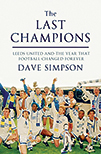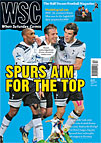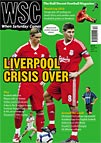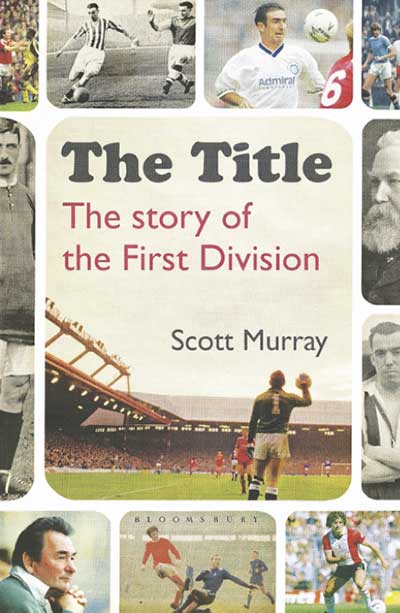Search: 'Howard Wilkinson'
Stories
 Leeds United and the year that football changed forever
Leeds United and the year that football changed forever
by Dave Simpson
Bantam Press, £16.99
Reviewed by Simon Creasey
From WSC 305 July 2012
Twenty years ago a ragtag bunch of journeymen footballers, raw youngsters, non-League players plucked from obscurity and a mercurial Frenchman achieved the seemingly impossible. Assembled for just £8 million, the 1991-92 Leeds United team created by Howard Wilkinson became the last side to win the old Division One title. The following season the Premier League was born.
What this team achieved in a short space of time was unprecedented. In just three and a half seasons, following almost a decade in the wilderness, Wilkinson transformed a relegation-threatened second-level side into League winners. The sheer size of the achievement has finally been given the recognition it deserves in The Last Champions.
Author Dave Simpson tracked down members of the title-winning side to find out what it was like in the inner sanctum of the club during this momentous period. Featuring interviews with former players including Lee Chapman, Tony Dorigo and a touching chat with Gary Speed shortly before his untimely death, Simpson pieces together what made this team such a cohesive, well oiled machine.
The book starts by revealing that Wilkinson pioneered many of the sports science techniques common in today’s game. From the dietary advice and special vitamin drinks he prescribed, through to the extreme, military-style fitness regime that earned him the “Sergeant” moniker, Wilkinson was acutely aware that physical conditioning could make up for a shortfall in technical ability.
It also charts Wilkinson’s sometimes suspect man-management skills and his ability to cut players loose without seeming to give any thought to their feelings. Among many others, Vinnie Jones and Chris Kamara were ruthlessly released when Wilkinson decided they had served their purpose by helping the club return to the top flight.
The interviewees provide plenty of eye-opening stories about former team-mates. While Simpson failed to make contact with the reclusive David Batty, who turned his back on the game after retiring, there are plenty of colourful anecdotes about the midfielder. Such as the time an inebriated Jones took his car for a spin – with some “birds” in tow – around Batty’s front lawn before breaking into the house to frighten his team-mate, only to find Batty wielding a Bowie knife that he hid in his bed.
Amid the usual revelations that are common to all contemporary football biographies, Simpson’s story captures the pathos of the many players who narrowly missed out on the Premier League cash cow. While some leading lights from the squad forged lucrative post-retirement careers, such as Eric Cantona, Jones and Kamara, many of the title winners are still holding down ordinary jobs to pay the bills. Former striker Carl Shutt works as a travel agent and towering centre-half John McClelland provides regular tours of Elland Road when not working as a postman. McClelland best sums up the sheer magnitude of the team’s achievement, which he likens to “climbing Everest”. To put it into context, imagine Southampton winning the Premier League title in 2013-14. That is what Wilkinson and his players achieved and it is what makes this story so special and worthy of Simpson’s insightful homage.
 Since the relegation from the Premier League in 2000, Sheffield Wednesday have been plagued by problems on and off the pitch. Tom Whitworth outlines the importance of Milan Mandaric’s recent takeover
Since the relegation from the Premier League in 2000, Sheffield Wednesday have been plagued by problems on and off the pitch. Tom Whitworth outlines the importance of Milan Mandaric’s recent takeover
Huge debt and a series of winding up petitions meant Sheffield Wednesday were close to administration last year. Thanks though to Milan Mandaric’s £8 million takeover, their long-standing financial problems, preceding even their relegation from the Premier League in 1999-2000, have abated at last.
 My Autobiography
My Autobiography
by Gary Neville
Bantam Press, £18.99
Reviewed by Joyce Woolridge
From WSC 297 November 2011
"Put ‘Gary Neville' and 'wanker' into Google and you'll get about 10,000 results." Neville is a man with no illusions about his popularity. The English generally like their professional footballers to be either thick or humble, preferably both. Gary Neville is neither and has taken plenty of flak about what are deemed to be his ridiculous pretensions, such as planning to build an ecohouse and daring to have opinions.
 Dear WSC
Dear WSC
I read with interest Paul Joyce’s article concerning the rebranding of SSV Markranstadt as RB Leipzig in WSC 273. Only this summer it was rumoured that my club Southampton would be saved from extinction by becoming co-opted into the Red Bull sporting portfolio. While the team colours, fitting snugly with the brand, would not need to change the adding of the Red Bull moniker seemed a step too far. Surely something would be lost in fusing a global brand, with all its focus-grouped values and marketing spin, to a football club; an act of historic vandalism similar to replacing stained glass windows in a church with double glazing while nailing a satellite dish to the spire. The internet debate suggested, however, that many Saints supporters were happy to trade naming rights in exchange for the club’s survival. The same supporters had several years previously reacted angrily against a corporate branding of St Mary’s Stadium as simply the “Friends Provident Stadium” with the ensuing negative publicity resulting in a U-turn with the addition of St Mary’s to the title. Corporate patronage is not as new as we would like to imagine. The P in PSV Eindhoven stands for Philips, as in the Dutch electrical giants, with the club’s home games at the Philips Stadion. Indeed, many clubs have benefited from long-term relationships with business which may be far preferable to other ownership and financing options; a quick glance around the leagues reveals several fates far worse than “Red Bull Saints”. Football may be just a game to some but following our team is about being part of a community, feeling a connection with the friends and strangers stood next to us at the ground. It is a thread linking us to people looking out for the score on a TV screen or in a newspaper on the other side of the world. Brands by their nature seek to harness and transform these feelings to translate them into profit, in the process sullying the very spirit of our club. Barcelona’s motto is “more than a club”. Every clubs motto should be “more than a brand”.
Neil Cotton, Southampton
